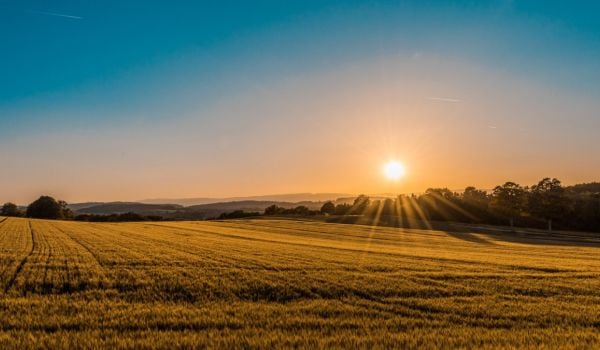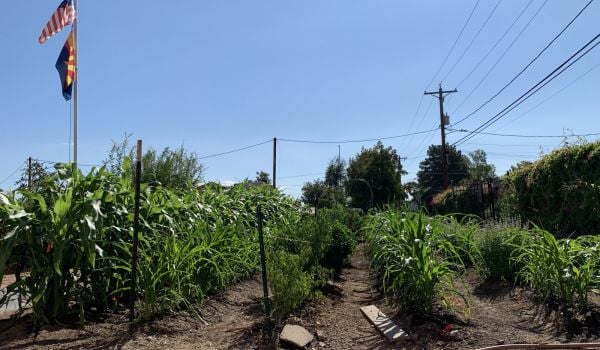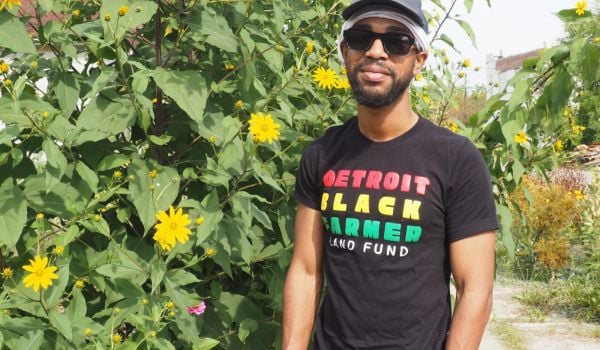Read this story in Spanish.
The structure of an old sugar mill sits in a once-abandoned parcel of land in Ponce, a city along Puerto Rico’s southern coast. Believed to be owned by the Puerto Rico Department of Housing, the space was used for over two decades as an illegal landfill.
It’s one of many abandoned buildings and spaces in Puerto Rican cities, the result of countless ongoing social, political and economic crises, coupled with a barrage of deadly earthquakes and storms.
But that land, about 10,000 square feet, is also one of a growing number of abandoned places that have been reclaimed by communities. Organizers of El Huerto Urbano del Callejón Trujillo, the community garden and gathering space that has since taken over the dumpsite, say their aim is to effect change and take into their hands what the government is neglecting.
“Being part of this community was key for me to overcome the distress and sadness I was feeling through the aftermath of Hurricane Maria,” says María Del Carmen Ramos, a 26 year old Ponceña that must drive to San Juan, the capital, for work and graduate school. She says El Huerto has become a space to reflect on what is possible in a place where already-difficult living conditions are ever-worsening.
After the category four Hurricane Maria hit the island in 2017, a nearby resident named Luis Enrique “saw the opportunity to co-create a space that offered what was lacking in the aftermath,” Ramos says. Since 2018, El Huerto has become a place that generates a supply of healthy foods for the communities surrounding it and facilitates the opportunity for people to learn agricultural skills.
“One could say that there is actually no bad soil, just soil that is not cared for properly,” says Ramos, who has been engaged in agroecological efforts and has supported local farmers with her labor at El Huerto.
_640_640_80.jpeg)
Maria Del Carmen Ramos harvesting a sweet potato at El Huerto. (Photo by El Huerto on Facebook)
In an archipelago where most of the food is imported and more than 40% of the population is below federal poverty levels and experience food insecurity, efforts like El Huerto show what improving access to land and food can do.
The food produced by El Huerto goes to feed community members, and has been cultivated and harvested by students who do their service hours there as well as by many others from the island’s south that seek a space to connect with people and land.
The process of rescuing and transforming El Huerto “returned to me the power to know that it is possible,” said member Yira Rodriguez in a 2020 short film on the community garden. “It allowed me to reconnect with what it means to be from Borikén,” Puerto Rico’s Taíno Native name.
El Huerto is part of a broader movement of abandoned land reclamation on the island.
Members of El Huerto are leading a new collective they catalyzed called La Aldea – The Village – through which local leaders are making art accessible, improving cooking skills, or providing access to land or to community connection. To share organizing ideas and strategies, members recently hosted a discussion forum at El Huerto with other community-based groups that have reclaimed and transformed spaces throughout other cities in Puerto Rico.
“We [the members of El Huerto] want to adopt a model that provides us with the means to safeguard our efforts. What model?” asks Ramos, who helped coordinate the forum, attended by over 50 participants. “Having this conversation is a start for us to brainstorm and decide what model is best for us.”
Speakers included Dalma Cartagena, an agroecologist and retired public school teacher, who talked about the schools she is continuing to work with in rural Orocovis that have transformed spaces for the production of healthy foods—one of them being among the many schools closed and abandoned by the government.
Members of western Mayagüez’s Taller Libertá also participated and underscored the importance of “activating unused spaces for the arts,” as did Bemba PR, whose efforts are to “intervene [with art] in public spaces.” Tara Rodríguez Besosa and Keila Ilanys, of el Departamento de la Comida, located in rural Caguas, talked about how these community-based projects can serve as “alternative [governmental] agencies.” Omar Ayala, of Urbe a Pies, also located in Caguas, but downtown, discussed their group’s efforts in reclaiming several abandoned buildings and spaces in Caguas, creating an ecosystem of services and opportunities.
Through these various strategies, these diverse community-based groups and activists, as well of all of La Aldea’s members, work toward the common goal of fortifying economic security and food sovereignty for Puerto Ricans. This place, María Del Carmen said, “has become a platform for social care and management, as well as for community organizing.”

Before and after community members worked to transform the land at El Huerto. (Image stills from documentary by Luis Enrique González Lozano)
El Huerto and these other projects show what can still be possible in a place of constant deterioration. Besides being a hub to produce and share food, El Huerto has created a space for the exchange of resources and services, providing environmental education while increasing the land’s agroecological diversity.
Most of all, Ramos says, it has provided “the opportunity to generate wellbeing” for members of the community garden as well as those beyond it.
Reclaiming something abandoned, caring for it and transforming it is a political act. But taking spaces in such a manner is not without its risks. At any moment, the space could be sold or reclaimed by the government. But with investors and settlers buying up property in a decade-long luxury feeding frenzy, often to take advantage of the Puerto Rico’s tax breaks, gentrification has left the local property market inaccessible.
That’s left Puerto Ricans with no other options, El Huerto members say. “We know that it is a possibility that we lose the space, but it is also a possibility that we continue to transform other similar spaces in Ponce,” Ramos says.

Luis Alexis Rodríguez Cruz brings visibility and understanding to food systems issues in Puerto Rico and beyond through science and storytelling. He explores social-ecological connections and relationships, considering the effects of the climate crisis and policy decisions, as they reflect on people’s vulnerability and the environment. Luis does so through applied research, multidisciplinary art, and food culture. He holds a PhD in food systems from the University of Vermont, and a BS in biology and a MS in food science and technology from the Ponce and Mayagüez campuses of the University of Puerto Rico, respectively. He has published his works in open-access journals, and has written for El Nuevo Día, 80grados, Science and others.
Follow Luis .(JavaScript must be enabled to view this email address)



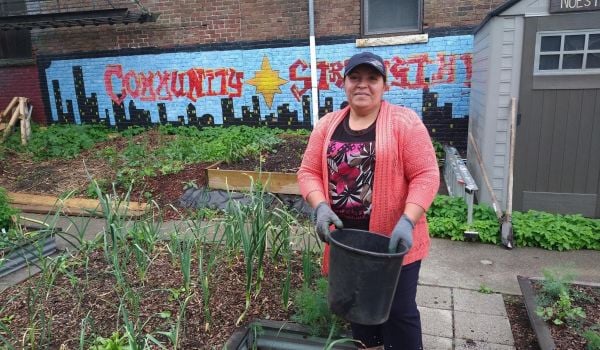
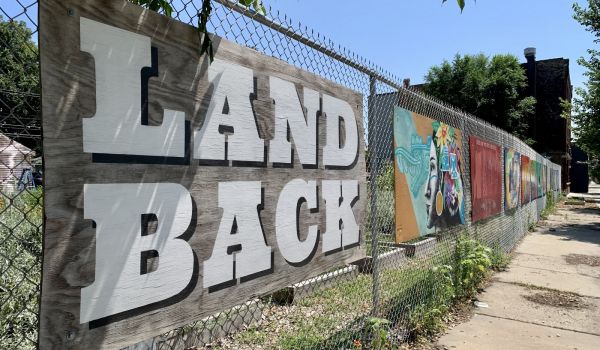
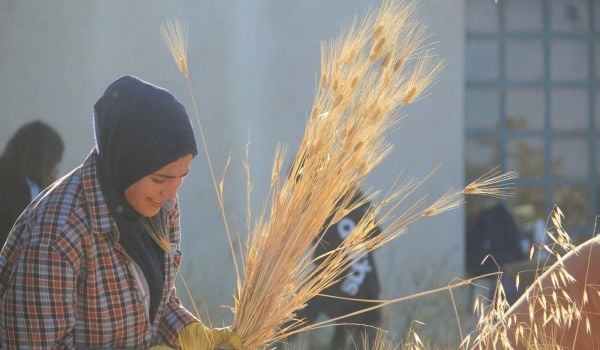
_600_350_80_s_c1.jpeg)
